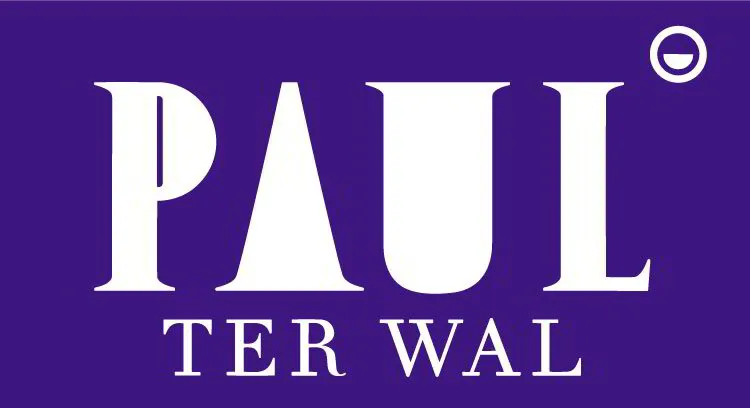Your organisational values should be the reason employees want to work for you and why customers buy from you. These ethics should run throughout your company and guide your actions. When there are a small number of employees, this may not be too difficult to achieve.
But, when you have a larger workforce, your messaging can get lost in translation. Company handbooks may have too many pages for employees to read, and it's challenging to spend time with individual staff members. Unfortunately, these issues can result in employee dissatisfaction. This leads to lower productivity and higher staff absenteeism.
Fortunately, it is possible to reengage with your workforce and create an organisation that reflects your values. This can reap rich rewards for companies that value their staff and show their appreciation.
Read on to find out how to inspire your employees and boost staff engagement.
Content Overview
What Are Organisational Values?
Examples of Organisational Values
Why Are Organisational Values so Important?
Establish Your Organisational Values to Increase Engagement
Partner with Paul ter Wal Today
What Are Organisational Values?
Your organisational values are what your company believes in and stands for above all else. They explain why your business exists, how it got to where it is, and where it is going. Without these elements, there is a risk your business will fall into the trap that many others are victim to - existing solely to make a profit.
When this happens, how can you create an atmosphere that inspires your staff? Why would a customer want to buy from a company that sees them purely as a number instead of as an individual person? Your values set you apart from others and give people a reason to believe in your company and want to make it a success.
Some key organisational values examples are honesty, trust and accountability. Commitment to customers, passion and a desire to look after the welfare of your employees are also common.
You may think that nearly every company would share these values, and you are partly correct. Indeed, management briefings and staff handbooks will usually include these messages. But the issue is that very few businesses actually practice these values.
This means that employees do not benefit from your vision. They don't know they are part of an organisation that truly has the best interests of staff and customers at the heart of everything they do.
Examples of Organisational Values
When it comes to values, no two companies are the same, but there is some overlap. Common values include:
- Diversity and inclusion
- Thought leadership
- Simplicity
- Customer empowerment
- Innovation
- Customer service
- Authenticity and integrity
- Employee development
- Openness and transparency
- Environmental protection and sustainability
- Teamwork
Adidas
Sports clothing brand, Adidas, is often cited as having brand values that stand out from the competition. It focuses on customer empowerment, believing that “through sport, [it] has the power to change lives.” Adidas also innovates by improving its clothing lines to help athletes achieve peak performance.
Ben & Jerry’s
World-famous Vermont-based ice cream maker, Ben & Jerry’s, is an iconoclastic brand, famous for its quirky thought-leadership in the frozen desserts space. The company is on a social mission, designed to promote justice and sustainability across the globe. It has a progressive political bent, which is popular among its coastal customer base.
In the past, Google had one of the boldest examples of organisational values: “don’t be evil.” The guiding principle was idealistic, and a reflection of the world as it was in 2000. Since then, the search engine has removed it from its corporate code of conduct but still retains some references to it informally. Google’s primary values now include:
- Democracy on the web works
- Focus on the user above all else
- Fast is better than slow
- Make money without doing evil
- Information should cross all border
- Great isn't good enough
Google is rare in that its guiding principles are more philosophical than other brands. The search giant recognizes the responsibility it has as a steward of global information flows.
Zappos
For team Zappos, these 10 core values are a way of life. It was a result of a participatory process among their employees. Every single team member is aware that operational systems and processes may change, but each decision is anchored on these values, which never change:
- Deliver WOW Through Service
- Embrace and Drive Change
- Create Fun and A Little Weirdness
- Be Adventurous, Creative, and Open-Minded
- Pursue Growth and Learning
- Build Open and Honest Relationships With Communication
- Build a Positive Team and Family Spirit
- Do More With Less
- Be Passionate and Determined
- Be Humble
Paul ter Wal
At Paul ter Wal, we help organisations increase effectiveness by improving team engagement and accountability. This process starts with identifying the values that each team member can live by. We are guided by these core values, in every aspect of our engagements with customers, business partners, and in the communities that we belong to:
- Results-oriented cooperation
- Transparency in our approach
- Pleasure of work/life enjoyment
- Primarily focused on knowledge transfer
Why Are Organisational Values So Important?
Accenture, Google, Ikea, and other successful companies have one thing in common: they are driven by strong values and ethics. For example, Ikea promotes eight key values, such as leadership by example, togetherness, and simplicity. Coca-Cola encourages its employees to put passion into everything they do.
Organisational values define your brand identity and mission. These principles and beliefs have the power to shape a company's vision and employee behaviour. They also play a key role in decision-making, recruiting, retention, and product development.
While most leaders understand the meaning of organisational values, some have a hard time putting them into practice. That's why it's important to define your company's values early on and use them as guiding principles. Think of them as the heartbeat of your business.
A company's core values influence its actions and decisions. These guiding principles are relatively stable over time and have a direct impact on corporate culture, employee behaviour, and internal policies.
Organisations with strong values often have a competitive advantage. They may also find it easier to attract talent and reach their business goals.
For example, about two-thirds of consumers prefer to buy goods or services from brands that have a purpose that aligns with their values. If, say, your company promotes diversity in the workplace, you'll likely attract consumers who care about this aspect.
Likewise, an organisation that uses sustainable business practices will find it easier to reach buyers who care about the environment.
Glassdoor reports nearly 77% of job seekers would consider a company's culture when looking for work. Nearly 80% would take into account its mission and purpose. As it turns out, corporate culture is more important than salary for most employees.
Well-defined values attract top talent while improving the company's bottom line. Plus, they can make your staff feel that their work is worthwhile. Values also support your marketing and business goals, reflecting how your company relates to its customers and society as a whole.
Measure Employee Engagement
It's important to determine how widespread your organisational ethics and values are in your company. The first step is to measure employee engagement. Often, a management board may think these ethics are embedded in their business practices. But if the employees do not believe this, then the values are not there.
A good way to get an accurate picture of employee buy-in is to use questionnaires. Staff should be encouraged to be honest and understand that you need their feedback to build a better culture. It's important that employees feel safe to comment on what they find frustrating or negative. This information is just as vital as explaining the elements of the business they enjoy.
This information is the building block of creating the company you really want to own, and others want to join.
Change Your Organisational Values
With values being crucial to success, you'll likely want to make some changes. The employee surveys should display where your staff feel improvements could be made. By taking action, you are showing people you care about their opinions.
Throughout this process, it's crucial to remember this is about everyone pulling in the same direction. While management are the people making the changes, this is driven by employee engagement. Therefore, you need to display a willingness to learn from and support your staff where possible.
It's vital to have one-to-one conversations with every member of staff and to engage in two-way dialogue. This is your chance to learn about how staff think about their role and your opportunity to explain your vision for the company. You can also boost engagement by using tried and tested strategies.
For example, you could introduce flexible working patterns to promote a better work/life balance. You could also make work more fun by having quizzes or relaxed lunch meetings. Another idea is to have perks and incentives that encourage staff to reach certain goals.
Over time, these practices become part of your organisation's structure. Your workplace becomes somewhere your employees' value. Not only does this create an environment everyone wants to be part of, but it has huge business benefits. Your company can enjoy increased productivity, workplace satisfaction and profitability.
Maintain Your Organisational Standards
It's critical to have an organisational values list that everyone can view to avoid losing sight of the ultimate goal. But, management has a responsibility to measure the results, ensuring your changes have the desired effect. For example, you could see reduced absenteeism or more staff members taking part in work social activities.
You may also find an increase in internal communications. Staff who are happy and enjoy working with their colleagues are more likely to help each other. They also share a desire to contribute to the success of their department.
All these benefits come from the starting point of having values and ethics that inspire your team members to take your company to the next level.
Partner with Paul ter Wal Today
Paul ter Wal is an industry-leading company that helps businesses identify their core values and gain employee engagement. Our goal is to help you create an environment that your workforce is proud to be part of. Raising staff engagement and ultimately creating a better business is a significant benefit for all parties.
We specialise in employee engagement consulting, and we can reduce staff turnover and employee sickness. It can also help you boost productivity and company revenues.
For a consultation and to find out how we can help your business, contact Paul ter Wal today.



